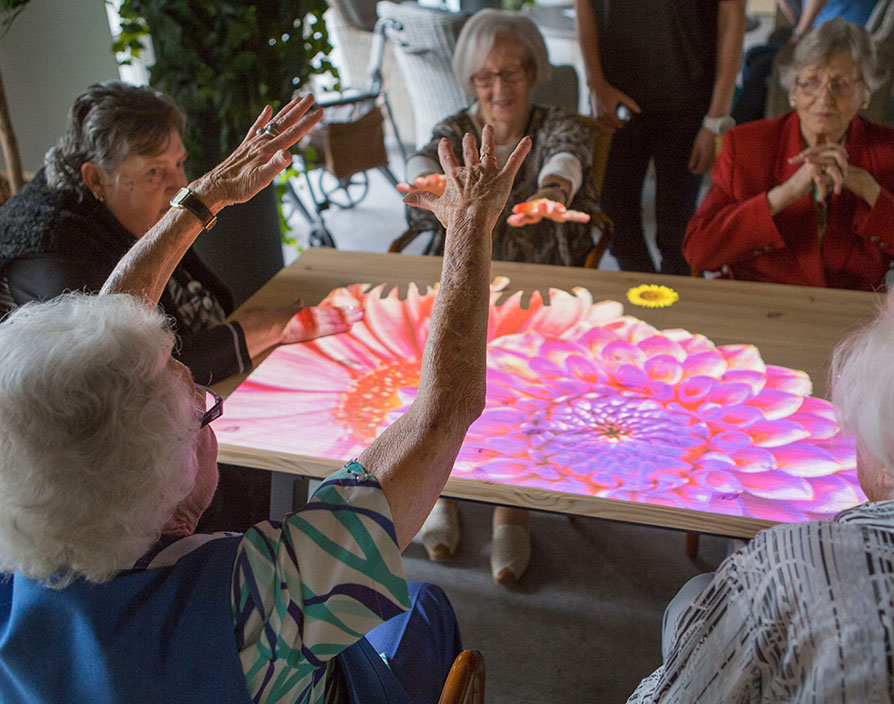Gone are the days when earning profits was the sole aim of starting a business. Today millennial entrepreneurs look for a social purpose irrespective of the time it would take to get return on their investment. That was what caused a former magic circle law firm lawyer to leave his cushy corporate job and start a company in the care industry. “And hence Shift8* was born, committed to changing the world by introducing socially responsible and life changing products,” says John Ramsay, co-founder of the tech startup launched in 2015.
But he didn’t have to look far for inspiration – his father was diagnosed with dementia when Ramsay was 12-years-old. “It was extremely difficult growing up and coping with my father’s condition, spending my teen years helping to care for him,” Ramsay reflects. He reveals that it was particularly difficult to separate the illness from the person, the consequence of which was that he blamed his father for any changes in his personality. “Of course, I was completely wrong and over time I realised and accepted that my dad was clearly blameless and any anger directed towards him was completely misplaced,” he says.
Moreover, his time caring for his father provided invaluable insights into just how much the healthcare sector needed to be updated. “Through my experience with dad, I noticed there was and still is, a real lack of innovation and use of technology in the care sector,” Ramsay remembers. The question was how could he revolutionise the care sector with tech?
The answer could be found across the English canal where the company Active Cues had great success with the Tovertafel technology. Based on theresearch by Phd student Hester Le Riche, the Netherlands-based company launched the Tovertafel — magic table in English – in 2009 and spread it around the Benelux countries. The Tovertafel is an interactive light projection system, which produces images and games on a table or surface below allowing the patient to touch and move the animations,stimulating their brains in the process. It also made them move physically – a rather Herculean task for dementia patients.
Learning of this technology was Ramsay’s eureka moment which probed him to leave his law job. “After having worked in the corporate world for so long and witnessing an individual on their dementia journey experiencing moments of happiness because of the Tovertafel – that just blew me away,” he recalls. Now, by bringing the Tovertafel to the UK, Ramsay felt able to fulfil his dream of helping people and launched Shift8* in 2015. “I knew we had to do everything we could to continue bringing joy to the lives of others,” Ramsay says. “It also helped managing to build a team that cares as much as you do.”
Ramsay then began visiting care homes demonstrating the Tovertafel. Care home owners saw how it alleviated the social anxiety and cognitive decline in the patients. “The residents can interact with relatives, informal carers and care staff, alongside other residents. And ultimately interaction is key,” said Ramsay. “[With Tovertafel] everyone can experience happiness and joy no matter their age or situation.”
This ideology helped Ramsay to venture into other kinds of conditions people are diagnosed with. For instance, he is now working with universities to help children diagnosed with learning disabilities. “We are launching the Tovertafel Up which is aimed at those with learning disabilities and the Tovertafel Unique for those living with autism,” Ramsay adds. Similar to the games for patients with dementia, there will be different images designed for the academically challenged.
Not only is this technology helping families deal with a difficult situation to connect with a close member but Ramsay is encouraging the young generation to play their part with opportunities like the Tovertafel buddy scheme hoping that in the future they can work in the sector. Young volunteers aged between 17 and 23 visit care homes to explain the benefits of the magic table. It’s no doubt that Ramsay himself would be a great example of giving back to the world through tech measures.
However, technology in the care sector is nothing new. Whether it’s artificial intelligence changing physical therapy or robots analysing health records, startups around the world are using new innovations to update the medical industry. When asked about why we’re seeing this trend now, Ramsay says: “I think it’s the fact that there is so much potential for tech in the healthcare market.” He adds that while traditional healthcare tech basically enabled telecare and better alarms, the leaps made in the last decades has enabled a boom in innovations in this sector. “[Technology] has begun to transform the way in which we provide care,” Ramsay says. Moreso for dementia patients. Specially when dementia is affecting 850,000 adults in the UK alone, research from the Alzheimer’s Society said. And these numbers would rise to one million in the next seven years. Looking at these figures, it’s easy to see how a technology like Tovertafel would be handy to help pateints cope.
Given how Shift8* is scaling and expanding in the UK and Ireland, it won’t be surprising to see Ramsay achieving his overarching goal of reaching ten million people on a daily basis in the coming years. Although it might not be a cure but every step towards reducing the pain is a step towards progress. Tovertafel has a presence in 250 care homes in the UK already. With more than 3,000 patients experiencing a better life on a daily basis, Ramsay is set to transform every patient’s life. “We just need a bit of help to spread the word,” he concludes.![]()
Share via:








































